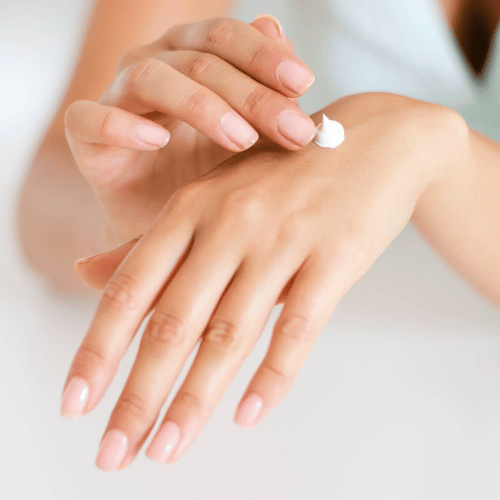Are you reaching for that bottle of vitamin E daily? Hold on! With its reputation as a powerhouse antioxidant, it's no wonder we all want a piece of the "vitamin E magic." But let’s talk about something that might change how you view your daily routine.
Imagine a single nutrient that could sweep through your body, offering protection against various health menaces, from heart disease to aging skin. Vitamin E claims that throne. But amidst the cheers for its benefits, a pressing question lingers – "is it ok to take vitamin E supplement everyday?"
This essential nutrient has been hailed as a fountain of youth and a shield against chronic disease. The allure of vitamin E has never been stronger, and the promise of its benefits has never been more tempting. Discover the line between enough and too much, the truth behind natural versus synthetic, and how to harness vitamin E’s potent health benefits without stepping into risky territory.
Dive into our ultimate guide now to unlock the mysteries of vitamin E and make a choice that’s not just good but informed. Let’s journey together into the wellness world where your decisions are powered by knowledge.
Key Takeaways:
Let's chat about vitamin E in a way that's like catching up with an old friend – easy, informative, and beneficial:
- Vitamin E is not just another nutrient; it's a key player in your antioxidant defense team, potentially guarding you against serious health contenders.
- Figuring out the perfect balance for your vitamin E intake is like finding the sweet spot in your favorite game – crucial for winning but unique to each player, especially if you’re juggling health conditions or heart disease concerns.
- The potential perks of vitamin E are like a highlight reel of health triumphs – from a heart that beats with vigor to a mind that stays as sharp as a tack, and let’s not forget skin that glows with gratitude.
- If you’re painting your lifestyle with strokes of wellness, remember vitamin E could be both your brush and your color, but the right dose is your artistry.
Understanding Vitamin E: A Cornerstone of Antioxidant Health
Vitamin E isn't just a single entity but a group of fat-soluble compounds with distinct antioxidant qualities. These compounds play a vital role in protecting our cells from the oxidative stress caused by free radicals, which are by-products of fat metabolism. Here's a closer look at this essential nutrient:
Where Does Vitamin E Come From?

The beauty of vitamin E is that it's woven into the fabric of our everyday diet. Its presence is abundant in:
- Vegetable Oils: Think sunflower, safflower, and wheat germ oils.
- Cereals: Many are fortified with vitamin E for that extra nutritional punch.
- Meat: A succulent steak is not just flavorful but also a source of E.
- Poultry: Chicken and turkey are part of the vitamin E family.
- Eggs: They're more than just a breakfast staple; they're a nutrient-packed start to your day.
- Fruits: Adding a sweet touch to your vitamin E intake.
Each of these foods brings something special to the table, contributing to the well-rounded chorus of health that the Food and Nutrition Board sings praises for.
Vitamin E in Health Research
Vitamin E's superhero status in the body's defense against chronic illnesses is under the microscope. Researchers are diving deep into understanding how this nutrient may play a role in warding off diseases that oxidative stress has a hand in, such as prostate cancer and colon cancer.
The Journey of a Fat-Soluble Vitamin
What sets vitamin E apart is its fat-soluble nature, meaning it cozies up in the body’s fat stores, ready to be called upon when needed. Unlike water-soluble vitamins that quickly exit "stage left" via urine, vitamin E stays for the encore. It's absorbed with the help of dietary fat—think of it as a nutrient that likes to hitch a ride with fat molecules, aided by bile and pancreatic enzymes, to reach its destination in the body.
Those with conditions that affect fat absorption may find themselves in a vitamin E deficiency. It’s essential to pair vitamin E with fats to ensure its absorption and health benefits.
The Natural Versus Synthetic Showdown
Regarding vitamin E, not all forms share the same spotlight. The natural kind, typically derived from our diets, comes in a singular, bioavailable form. On the flip side, the synthetic variant, often found in supplements, is a blend of eight stereoisomers, with only one matching the natural superstar.
Natural vitamin E is the headliner for a reason—it's more readily absorbed and utilized by the body. Synthetic vitamin E, primarily sourced from hydrocarbon products, may not always hit the right note. If you're looking to supplement, it’s best to steer clear of synthetics and opt for natural vitamin E to get the full experience.
Navigating Daily Vitamin E Needs: A Path to Optimal Health

Understanding your body's vitamin E needs is crucial as these vary across different life stages:
- Adults: A benchmark of 15mg of vitamin E daily supports overall health.
- Children: Their growing bodies have unique needs that change as they develop.
- Pregnant Women: A range between 3mg and 30mg may be recommended, highlighting the need for professional guidance.
Embracing a diet rich in vitamin E sources is the primary strategy for fulfilling these needs. The vitamin E ensemble features:
- Nuts: Almonds lead the pack with their rich vitamin E content.
- Seeds: Sunflower seeds shine bright with significant levels of vitamin E.
- Vegetable Oils: Options like wheat germ oil provide a healthy nutrient dose.
- Leafy Greens: Add color and nutrients to your plate with greens like spinach and Swiss chard.
Diversity in your diet ensures a symphony of sources, delivering vitamin E's full spectrum of benefits to your body.
The Scale of Supplements Versus Diet
While supplements are available, the natural harmony of a balanced diet is preferred for vitamin E intake. The American Heart Association serenades the benefits of getting nutrients from foods over supplements. Seeds, nuts, and vegetable oils are encore-worthy sources, along with green leafy vegetables and specialty oils like wheat germ oil.
If circumstances lead to supplementation being necessary, a conscious evaluation is key. Supplements can play a role in managing blood pressure and combating free radicals and may contribute positively to conditions like endometriosis and diabetes. However, the science isn't clear-cut on their effects on bone health, cancer prevention, or heart disease, and they should be approached with a discerning eye.
For those considering the supplementation route, it's worth looking at my article below, which spotlights five top-notch natural vitamin E supplements available today. This curated review can guide you in making an informed choice if you need to complement your diet with an additional vitamin E source.👇
Navigating the Safe Use of Vitamin E Supplements
Embracing the antioxidant power of vitamin E through supplements is usually safe, but it's critical to steer clear of potential hazards linked to overuse and drug interactions. Here’s what you need to know:
Treading the Safe Waters of Vitamin E Consumption
While taking vitamin E supplements is safe within recommended doses, surpassing those levels might trigger adverse effects such as nausea, headaches, and more severe issues like bleeding. Especially for those in delicate health or with a history of heart disease, there's an added layer of risk, as excessive vitamin E could be detrimental.
The Fine Line of Vitamin E Intake
Adhering to the recommended 15mg/day threshold of vitamin E intake is your safest bet. Exceeding this limit can lead to side effects, including blood thinning and muscle weakness, which can further amplify the risk of bleeding.
Cross-checking with Medications
Vitamin E doesn't always play well with others. Before supplementing, have a chat with your healthcare provider, particularly if you’re taking medications like warfarin or undergoing treatments like chemotherapy, where vitamin E could interfere with their effectiveness.
When Deficiency Strikes
A deficiency in vitamin E is a rare guest but could show up in premature infants or those with fat-malabsorption issues, showcasing symptoms like muscle weakness and vision problems.
Who's at Risk?
Vulnerable groups like premature infants might battle with low vitamin E levels, while older adults could face challenges maintaining adequate nutrition, including sufficient vitamin E intake.
Charting the Course for Correction
Preventing and treating vitamin E deficiency starts with a nutrient-rich diet—think wheat germ oil and almonds. If supplements are needed, stick to the 15mg daily guideline for adults, adjusting as necessary under professional advice.
By remaining within the safe harbor of recommended doses and consulting with healthcare experts before combining supplements with medications, you can harness the benefits of vitamin E without undue risk.
Potential Health Benefits of Vitamin E

Owing to its antioxidant and anti-inflammatory properties, vitamin E holds potential health benefits. Nonetheless, further research is required to understand its effects on various health conditions comprehensively. Some studies suggest vitamin E supplementation, particularly when taken with vitamin C, may be associated with small improvements in dementia.
Unlocking the Promises of Vitamin E
Vitamin E, with its antioxidant prowess, stands as a beacon of hope for its possible health boons, though the full spectrum of its benefits is still a subject of ongoing research. Here’s a glimpse into the potential that vitamin E holds:
A Shield for the Mind
Some studies point to a glimmer of benefit in cognitive health, where vitamin E, particularly when allied with vitamin C, could offer modest improvements in conditions like dementia. However, the science is ongoing, and vitamin E is not a standalone treatment but a potential complement to other therapies, especially when teamed with vitamin C.
A Helping Hand for the Liver
For those grappling with non-alcoholic fatty liver disease (NAFLD), vitamin E supplements might emerge as a supportive ally, offering potential benefits. Yet, it's crucial to tread carefully, weighing the positives against possible risks and adverse effects that supplementation might carry.
The anticipation of vitamin E's health advantages paints an encouraging picture. Still, it's essential to navigate this terrain with well-informed caution, consulting with healthcare professionals to tailor a safe and beneficial approach to supplementation.
Antioxidant and Anti-Inflammatory Properties
Vitamin E, renowned for its potent antioxidant properties, is a cellular champion against oxidative stress. It serves as a crucial guard, neutralizing free radicals that, if unchecked, may lead to cellular damage and a cascade of health issues, including cancer. By selflessly donating electrons, vitamin E stabilizes these radicals, forestalling the potential harm they can inflict on our cells and genetic material.
The anti-inflammatory prowess of vitamin E is equally impressive, contributing to a potential reduction in heart disease risk. This vitamin impairs the synthesis of inflammatory eicosanoids and scavenges harmful nitrogen species, mitigating inflammation that can harm the body's systems. Its role in skin health is noteworthy, too, as it may alleviate damage from UV radiation by dampening inflammation, although these effects are still a subject of active research.
Current Research and Findings
As for the current scientific landscape, research on vitamin E continues to yield a spectrum of results. Some observational studies have hinted at an inverse relationship between vitamin E intake and heart disease risk. Yet, randomized trials like the HOPE study challenge this association, showing no significant benefits of vitamin E supplementation in cardiovascular event reduction.
In contrast, a 2022 review tentatively links higher vitamin E levels with a reduced risk of heart disease, while a 2021 review casts a shadow on this link, suggesting potential negative cardiovascular implications at high vitamin E concentrations. Despite its antioxidant acclaim, the high-dose vitamin E narrative is complicated by mixed findings, leaving its role in preventing chronic diseases as an open question for further scientific scrutiny.
Topical Vitamin E Use

Topical Application and Skin Health
Vitamin E, when used topically, is hailed for its skin-nurturing properties. It’s a popular ingredient in many skincare products, revered for its potential to combat aging signs like wrinkles and its healing benefits for minor wounds. The vitamin's antioxidant activity also extends to scar treatment, where it may help in lightening their appearance. Moreover, its anti-inflammatory action soothes the skin, reducing inflammation and encouraging cellular repair and turnover, crucial for maintaining a healthy, vibrant complexion.
Usage Guidelines for Topical Vitamin E
When opting for vitamin E in your skincare routine, products infused with this nutrient or pure vitamin E oil can be gently applied to the skin. For direct application, a small dab of oil can be massaged into the area until it’s absorbed, fostering skin calmness and rejuvenation. It's often recommended to pair vitamin E with vitamin C for enhanced protective antioxidant effects. Before completing a full application, conducting a patch test is advisable to ensure your skin's compatibility with vitamin E, thereby preventing any adverse reactions.
Embracing Vitamin E: A Guide to Optimizing Your Health
Vitamin E is a cornerstone nutrient, offering many health benefits due to its antioxidant and anti-inflammatory prowess. When it comes to bolstering your health regimen, incorporating vitamin E supplements, particularly those derived from natural sources and produced by reputable companies, can be a powerful ally. Such high-quality supplements can complement a balanced diet, ensuring you meet your daily requirements and potentially safeguarding against vitamin E deficiency.
It's essential to recognize that while taking vitamin E supplements is safe for most, moderation is critical to avoid the rare but severe risks like developing prostate cancer or exacerbating cardiovascular disease. A discerning approach to supplementation, guided by a health professional's advice, can enhance your nutrient profile without the associated risks of overconsumption. In fact, natural vitamin E supplements have been shown to be more effective and are considered superior in supporting overall health.
For those looking to deepen their understanding of vitamin E's diverse benefits, my earlier article delving into the nuances of tocopherols and tocotrienols—the two dynamic subfamilies of the vitamin E family—can be invaluable. Together, these subfamilies offer a complex spectrum of health benefits that go beyond the prevention of conditions like lung cancer and cardiovascular disease. By exploring this article, readers can expand their knowledge and better tailor their vitamin E intake to their personal health needs.
Stay informed and empower yourself by adding this comprehensive guide to your library of wellness insights. By doing so, you'll take a significant step toward a well-rounded, proactive approach to your health maintenance. 👇
Frequently Asked Questions
What happens if I take vitamin E daily?
Taking vitamin E daily can increase your risk of bleeding, interact with medications, and lead to fatigue, nausea, and headache. Taking more than 1000 mg of vitamin E daily is not recommended as it may be unsafe.
How much vitamin E per day is safe?
It is recommended to get Vitamin E mostly from food sources, and the upper tolerable intake level (UL) for vitamin E supplements is set at 1,000 mg (1,500 IU) per day. Doses lower than 1000 mg/day (1100 IU of synthetic or 1500 IU of natural vitamin E) are likely safe for most people.
What are the side effects of taking vitamin E capsules?
Taking vitamin E capsules can cause side effects such as diarrhea, fatigue, headache, blurred vision, dizziness, high blood pressure, nausea, stomach cramps, and tiredness. These symptoms may occur when taking high doses (400 units or more per day) or for an extended period.
What is the main difference between natural and synthetic vitamin E?
Natural vitamin E is derived from food sources and is composed of a single stereoisomer, while synthetic vitamin E is a blend of eight stereoisomers. Natural vitamin E has greater bioavailability, and the body is better able to retain it, making it the superior option.
What are the best food sources of vitamin E?
Vitamin E can be found in nuts, seeds, vegetable oils, and leafy greens like almonds, sunflower seeds, wheat germ oil, rapeseed oil, spinach, Swiss chard, and turnip greens.
Thanks for taking this journey with us to explore if it's okay to take vitamin E every day. If you want to know more about the top Vitamin E supplements in the market, check out our article referenced above as well - it contains significant information to add to your library of knowledge!
Also, please return soon to check out our next review of another incredible supplement – we’re always looking out for YOU!
*We are not qualified medical advisors. The content here is only based on our personal opinions and should NOT be used as a substitute for a healthcare professional's advice!











Member discussion